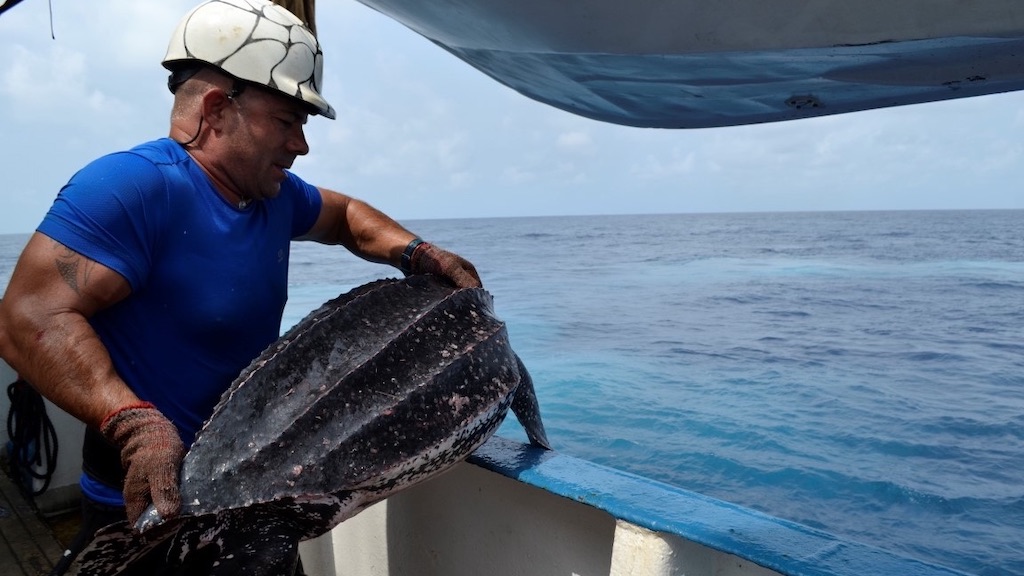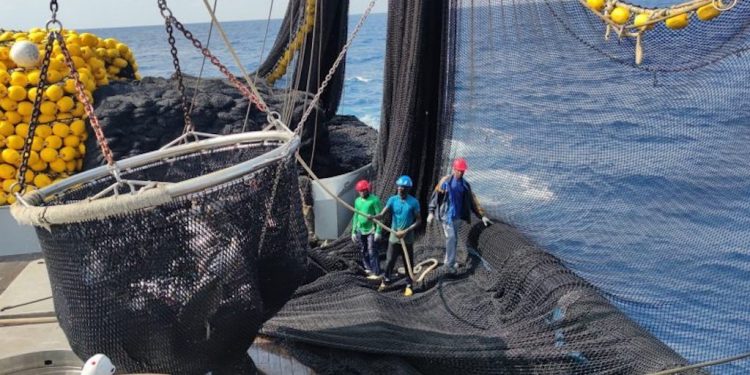The Asociación de Grandes Atuneros Congeladores (AGAC) has received MSC certification for its skipjack tuna in the Atlantic, making it the first in the world to hold sustainability certification for the same species in all four oceans.

In 2020, AGAC set out to attain certification for all its operations and had already achieved MSC certification for its Atlantic bluefin tuna as well as skipjack in the Indian, Pacific and Arctic oceans.
Now its Atlantic skipjack will also be able to carry the MSC blue label after successfully demonstrating the sustainability of the fishery following an independent audit process.
As a result, 265,000 tonnes of its 300,000-tonne overall catch is subject to MSC certification.
There are eight AGAC freezer purse seiners that catch skipjack tuna in the Atlantic – Albacora Quince and Albacora Caribe belonging to the Albacora Group, Monteraiola, Montelape, Montecelo and Montefrisa Nueve from the Central Tuna Management Corporation Group, and Sant Yago Uno and Sant Yago Tres, operated by Jealsa.
‘Achieving certification under the MSC Standard for around 80% of our total catch seemed impossible back in 2012 when we established out Code of Good Practices,’ said AGAC’s general manager Julio Morón.
‘The fact that all the listed stocks of tuna that we fish have been certified also shows that the work of the regional fisheries management organisations (RFMOs) is delivering results. Our ambition is to achieve certification for 100% of our capture in the next few years, working collaboratively through RFMOs with all the countries and interested parties in the fishing world.’

For its Atlantic skipjack AGAC has undergone a comprehensive assessment conducted by Lloyds Register (now LRQA) who found the population biomass had historically been and remained above the level corresponding to maximum sustainable yield and had never been overfished. There was extensive information about the population including stock abundance and structure, detailed fleet composition, and detailed reports of assessment unit catches. There was a recent stock assessment from 2022 that was fully adapted to the biology of the species assessed.
The assessment noted that the activities of the vessels under this certification are permanently monitored with 100% observer coverage by both human and electronic observers. In addition, leadership with the implementation of a Code of Good Practices (CGP) since 2012 to address impacts on non-target species, including the adoption of non-entangling fish aggregating devices (FADs).
Compliance with the CGP is verified annually by the independent scientific organization Centro de Investigación Marina y Alimentaria (AZTI).
All companies and vessels included in the certification have adhered to this binding Code of Good Practices. The fishery has made significant strides in reducing the impact of FADs on vulnerable habitats and the ecosystem by leading the transition to biodegradable FADs and monitoring this transition through the observer program.









